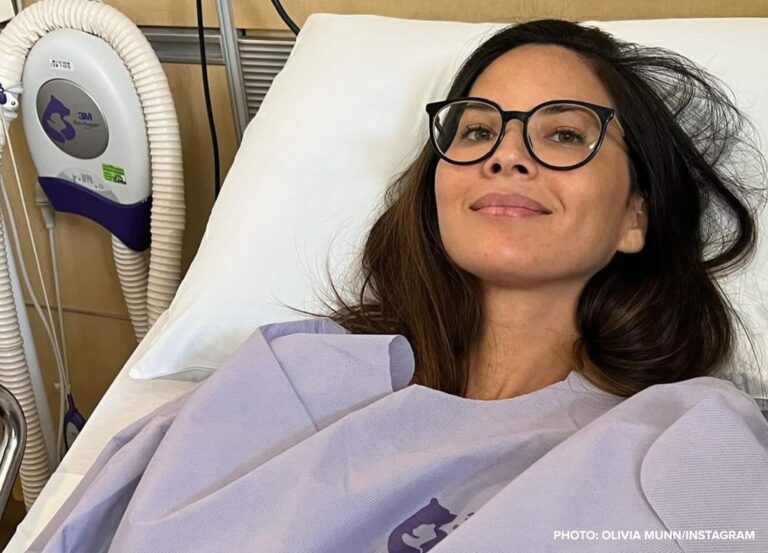Say you want to get a rhinoplasty. You schedule a consultation with:
- A facial plastic surgeon
- A dermatologic surgeon
- A plastic surgeon
It’s not meant to be a trick question—but it sure feels like one. The overlap between the different specialties within aesthetic medicine makes researching plastic surgery and cosmetic procedures and choosing the best provider all the more complicated. Below, a demystification of surgical specialties, subspecialties and doctor-training requirements, plus more helpful information on how to choose the best plastic surgeon.
Look into credentials
Make sure any surgeon you’re considering is board-certified in their specialty (The American Board of Medical Specialties recognizes 24 specialties, which you can find here). The board certifies a surgeon based on important, specific criteria like their operative record, experience, credentials and background. It is particularly important to research a provider’s qualifications and board certification, because doctors may be performing surgeries that veer from their formal training, such as an internalist doing plastic surgery procedures such as breast or butt augmentations—shocking, right?! (To that point, one potential red flag is doctors who call themselves cosmetic surgeons or are certified by the American Board of Cosmetic Surgery, since this is NOT recognized by the previously mentioned American Board of Medical Specialties.)
In the case of plastic surgery, you’ll want to ensure the doctor is certified by the American Board of Plastic Surgery (ABPS) and/or the American Board of Facial Plastic and Reconstructive Surgery. It also bears mentioning that board certifications are different than memberships to various organizations, though it may be worth inquiring about these as well. For example, the American Society of Plastic Surgeons (ASPS) is a well-respected organization with high standards and criteria for their members, though it is not a certifying organization.
Understand the differences between the specialties
The training involved in each surgical specialty can serve as an indication of the type of surgery the doctor’s likely do (although there’s no hard and fast rule). The most obvious case is dermatologic surgery, in which surgeons begin with dermatology training. “Dermatologic surgery covers skin and soft tissue—anything that is underneath the skin and above the muscle,” explains Dr. Misbah Khan, a dermatologic surgeon in New York City who specializes in revision procedures. Anything that involves bone or muscle, such as rhinoplasty (a bone surgery) and tummy tucks (which are under the muscle) is not typically involved. The only exception is eyelid and serious skin-cancer surgeries, in which the surgeon cuts the muscle; these cases require operating-room certification or hospital privileges.
Similar to dermatologic surgery, there are subspecialties within the world of plastic surgery that entail prior training in the area of operation. For instance, oculoplastic surgeons, who specialize in procedures of the eye area, such as blepharoplasties and injectable treatments, first undergo ophthalmology training before pursuing oculoplastic surgery as a specialty.
Facial plastic surgeons, on the other hand, typically complete training in otolaryngology (also known as ENT—short for ears, nose and throat) before entering the plastic surgery realm. “You’re trained in both reconstructive and cosmetic facial procedures, from the top of the scalp to the collarbones,” says Dr. Anthony Bared, a facial plastic surgeon in Miami who specializes in rhinoplasty and hair transplantation. “It ranges from hair transplantation to neck lifts.”
Plastic surgeons, meanwhile, have jurisdiction from head to toe, says Dr. Laurie Casas, a plastic surgeon in Chicago. They dedicate six years to surgical training, with at least three specifically in plastic surgery. Most board-certified plastic surgeons undergo six years of plastic surgery training. And they can specialize beyond that for both face and body. Dr. Casas, for example, followed plastic surgery training with residencies in face, eyes and nose aesthetics; breast augmentation; and microsurgery.
Plastic surgery is the only category with extensive training below the neck, which is why breast and body contouring fall entirely under its purview.
- For facial, nose or neck surgery (such as a facelift, rhinoplasty, neck lift), consult either a plastic surgeon or facial plastic surgeon.
- For eyelid surgery (such as a blepharoplasty), a plastic surgeon, facial plastic surgeon, dermatologic surgeon or oculoplastic surgeon can operate.
- For anything related to the skin and soft tissue, hair, sweat glands and acne glands, a dermatologic surgeon is a good choice. Dermatologic surgeons and facial plastic surgeons can also handle skin-cancer surgeries and reconstruction.
Other things to consider when choosing the right plastic surgeon
Clearly, there’s a lot in common across the specialties, so it’s worth taking a few factors into consideration. First, how often is the provider doing your desired procedure? “The more often you perform a procedure, the more experience you have, the more comfortable you feel performing it and the larger spectrum of cases you’re exposed to,” explains Dr. Bared. Not only does a surgeon who does, say, 200 rhinoplasties a year probably experience fewer complications than one who does only a handful, but they can likely deliver better results as well.
This vast experience often entails training in different locations and treating a diverse clientele, which can be important. Take rhinoplasty again: “It exposes you to the various forms of anatomy within the nose,” says Dr. Bared. “Obviously, within each ethnicity there’s a myriad of anatomies, but it helps to have a general understanding of what one can expect anatomically, given a patient’s ethnicity.”
In fact, patient demand can often determine what a good plastic surgeon specializes in. In the case of plastic surgeons, who can choose where on the body they want to specialize, “some fall into a specific practice pattern due to their demographics,” says Dr. Casas. Personal preference is also a major factor.
Still, there can be a big advantage to going to a specialist, particularly if the surgery entails a higher risk of complications or happens to be more complex. For instance, in addition to doing eyelid surgeries day in and day out, “I also know how to manage the eyelid problems that can happen after eyelid surgery,” says Dr. Mitesh Kapadia, an oculoplastic surgeon in Wellesley, Massachusetts. For that reason, he gets referrals from plastic surgeons and facial plastic surgeons alike, particularly when cases are challenging.
That’s key, according to Dr. Khan, who has worked with patients who’ve experienced botched procedures. “I specialize in revision, so I deal with scars, dents, indentations and skin-related issues where skin has suffered so much trauma that it’s now completely devastated,” says Dr. Khan.
If you’re looking for a certain procedure, you should consult multiple providers if there’s overlap—whether that’s a facial plastic surgeon and a plastic surgeon or a facial plastic surgeon and an oculoplastic surgeon. An easy way to do preliminary research is to seek out trusted providers. Check out reviews from previous patients, both positive and negative. Sort reviews by the highest and lowest rating, and look for patterns. A handful of negative reviews is normal for a busy practice, but it’s good to understand why people are unhappy. Before and after photos are helpful as well, but look at them with a critical eye. The doctor’s photos should be high-quality examples of his best work. Blurry, low-quality photos could be a reflection of the doctor’s attention to detail. Finally, looking for patients with similar body types to your own will give you the most realistic idea of what kind of results you might be able to expect.
Related: I Had the Riskiest Cosmetic Surgery There Is—and Later Discovered My Doctor Wasn’t a Plastic Surgeon
[Editor’s Note: RealSelf Verified will show a blue checkmark next to a doctor’s name in their profile, signifying that they meet or exceed our high trust and transparency standards and have high patient satisfaction. Participation on RealSelf, for aesthetic surgical procedures, is restricted to doctors with relevant board certifications. Doctors can also fill in a Procedures I’m Known For category, so you can choose a surgeon who is especially experienced in your prospective surgery.]
6 questions to ask at your consultation
Once you’ve booked a consultation, go in prepared to ask important questions that will help you get a better understanding of the doctor and how he or she works. Plus, if you ask the same questions at each consultation, you’ll be easily able to compare answers from various providers head to head.
- Am I a good candidate for this procedure?
The surgeon should evaluate the area on your body or face you’d like to change, so they can confirm your desired procedure is right for you or recommend an alternative treatment. They should explain the results you can realistically expect and how they may differ from your desired end goal, plus discuss your medical history with you. - How many procedures like this do you personally perform each year? How many do you do in an average day?
“You want to seek out someone who specializes in the surgery you’re interested in,” says Dr. Bared. “That’s the most important factor.” Choose a physician whose level of experience you feel comfortable with, and notice if they evade the question about the number of surgeries they do each day. Surgeons should perform a limited number of procedures each day. This can vary depending on the complexity of each procedure, but too many and they could get rushed and tired, which can lead to potentially fatal mistakes. - Where will my surgery be performed and do you have hospital privileges for this procedure?
Your surgery should be done in a hospital or in an accredited outpatient surgery center that’s been certified for patient safety by the Joint Commission (also known as JCAHO), the American Association for the Accreditation of Ambulatory Surgery Facilities (AAAASF), the Accreditation Association for Ambulatory Health Care (AAAHC), and/or Medicare. Even if your surgery will be done in an outpatient surgery center, hospital privileges mean that other doctors have verified their training and credentials. - What sort of anesthesia can I expect during my procedure and who will administer it?
There are three main types of anesthesia used during most surgical procedures: general (you’re put to sleep), local (only the specific surgical site is numbed), and IV sedation/”twilight anesthesia” (your level of consciousness is altered). Talk to your doctor about your options, but your anesthesia should always be administered by a board-certified anesthesiologist or certified registered nurse anesthetist. - Who will be handling follow-up care and visits?
Recovery care can be just as important to your outcome as the surgery itself. If your surgeon won’t be directly providing care during your follow-up visits, you should be seen by a registered nurse who can immediately alert and involve the doctor if they have any concerns about how you’re healing. - What happens if I’m not satisfied with my results or have a complication?
Some surgeons charge reduced surgical fees (or even waive them) for revisions, but you may still have to pay anesthesia and operating room fees. Minor touch-ups might only require local anesthesia, which is significantly less expensive than full sedation or general anesthesia. If you’ve chosen an experienced surgeon with proper training and certifications, one of the most common sources of dissatisfaction is results not living up to the patient’s expectations. That’s why it’s so important to communicate up front about expected results and follow recovery instructions carefully.
Finally, you want to pay attention to the rapport you have with the doctor and his or her general bedside manner. “There are going to be complications, there are going to be issues, there are going to be problems—and if everything goes okay, you can close the chapter, but what if not?” points out Dr. Khan. “It’s important that you like the person, everything aside.” If you’re in between doctors, ask yourself: Who can better handle or understand your concerns? Who is more likely to give you the results you want? Finding the answers may take dedicated time and research, but it’s worth it to ensure the best possible results.











